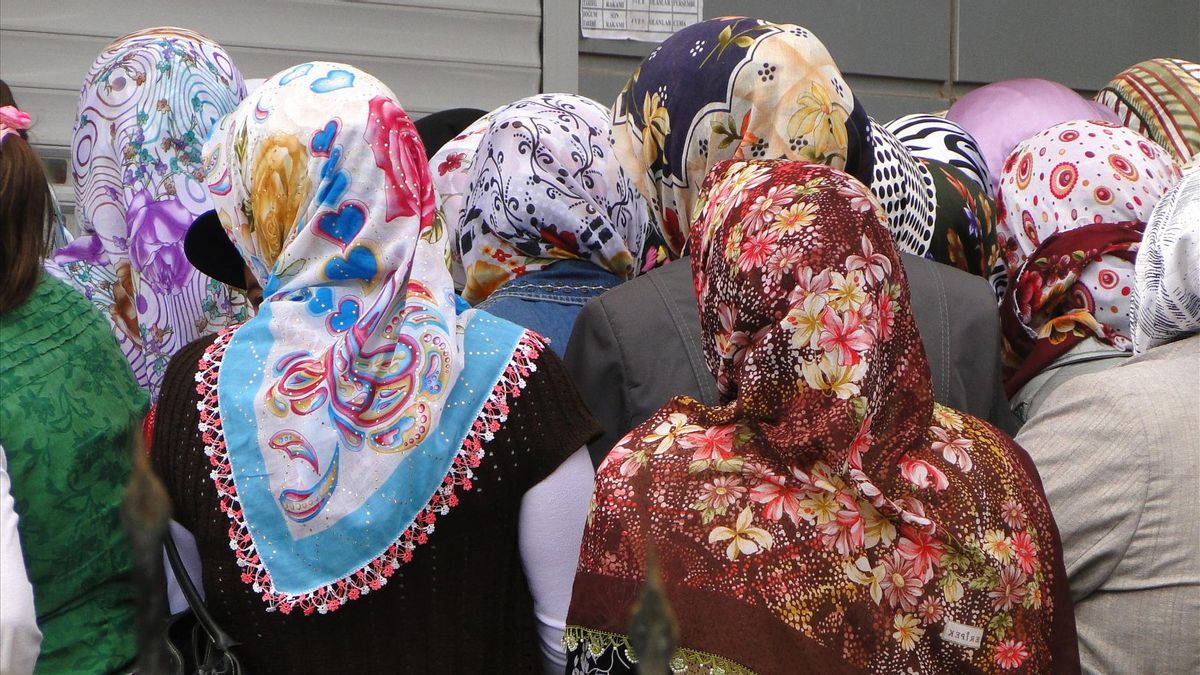JAKARTA - On February 9, 2008, the Turkish Parliament approved two constitutional amendments that loosened the ban on women from wearing the headscarf in universities. The problem is deeply divisive in Turkey, in a very secular country where protests are expected.
The government said the ban on the use of the headscarf kept many girls from receiving education. But seculars, including generals and academics, saw this as the first step in allowing Islam to play a more dominant role in public life.
Quoting the BBC, Tuesday, February 9, the parliamentary vote showed 403-107 in favor of the first amendment, which would include a paragraph into the constitution that states everyone has the right to be treated equally from the state institutions, said Parliament Speaker Koksal Toptan. Members of parliament were then supported by 403-108 votes, for the second amendment stating that no one can be deprived of their right to higher education.
A strict ban on the wearing of the headscarf had been enforced at Turkish universities since 1997. The ban was enforced after the secular military pressured to overthrow a government it deemed too Islamist. The change states that only the traditional scarf was allowed to be worn at the university, tied loosely under the chin. Hijab covering the neck was prohibited. Likewise, the veil and burka which cover everything.
Turkey's fading secular side
As Turkey's population is predominantly Muslim, two thirds of all Turkish women wear headscarf, meaning thousands of people will lose their chance to study if the headscarf ban remains in place. Many Turks think the ban is unfair.
There is broad public support for the move to lift the ban. But on the other hand, there are also tens of thousands of people who oppose the lifting of the ban. They even staged demonstrations in the Turkish capital, Ankara.
The demonstrators demanded the lifting of the ban on wearing headscarf. Over time, the ban on wearing the headscarf was lifted. In 2020, the Turkish government announced they were lifting a ban on female students wearing headscarf in middle schools.
Deputy Prime Minister, Bulent Arinc, a close ally of Erdogan said there was an amendment to the dress code rule for female students saying they would not be forced not to cover their heads. "I know that some students are looking forward to (amending) the middle school regulations", said Arinc.
Turkish Prime Minister Ahmet Davutoglu welcomed the amendments as an attempt to "democratize". Although the decision was criticized for destroying the basis of secular society.
"This should not only be seen as lifting the ban on wearing headscarf", said Davutoglu. "There are efforts for freedom and democratization in every area".
In 2019, Turkey also lifted a ban on women wearing headscarf at state institutions. This is part of the reform package to increase freedom and democracy.
But like any repeal, it sparked seculars' anger which was seen as an attempt to Islamize staunchly secular people. President Recep Tayyip Erdogan, who co-founded the Islamic-rooted Justice and Development Party (AKP), has been accused by his opponents of eroding modern Turkey's secular values.

The founder of modern Turkey, Mustafa Kemal Ataturk, based the post-Ottoman republic on the strict separation between religion and state. Ataturk abolished the position of caliph and the last caliph was expelled on March 3, 1924.
He also closed all religious courts, banned the wearing of headscarves for public sector employees, abolished the ministry of qanun law and Islamic foundations, lifted alcohol bans, adopted the Gregorian calendar in place of the Islamic calendar, and made Sunday a holiday instead of Friday.
He also changed the Turkish alphabet from Arabic letters to Roman letters. Ataturk also mandated that the call to prayer should be in Turkish rather than Arabic, even forbidding the wearing of the fez hat. Critics accused Erdogan of damaging Ataturk's legacy.
Erdogan also converted the Hagia Sophia museum back into a mosque. Despite many criticisms, Erdogan insisted from the start that the Hagia Sophia issue was Turkey's internal affairs, meaning that all decisions were in the hands of the Turkish government.
From 537 to 1453, the Hagia Sophia served as an orthodox cathedral church. However, when the Ottoman dynasty captured the city, Fatih Sultan Mehmet turned the Hagia Sophia into a mosque in 1453.
The English, Chinese, Japanese, Arabic, and French versions are automatically generated by the AI. So there may still be inaccuracies in translating, please always see Indonesian as our main language. (system supported by DigitalSiber.id)









